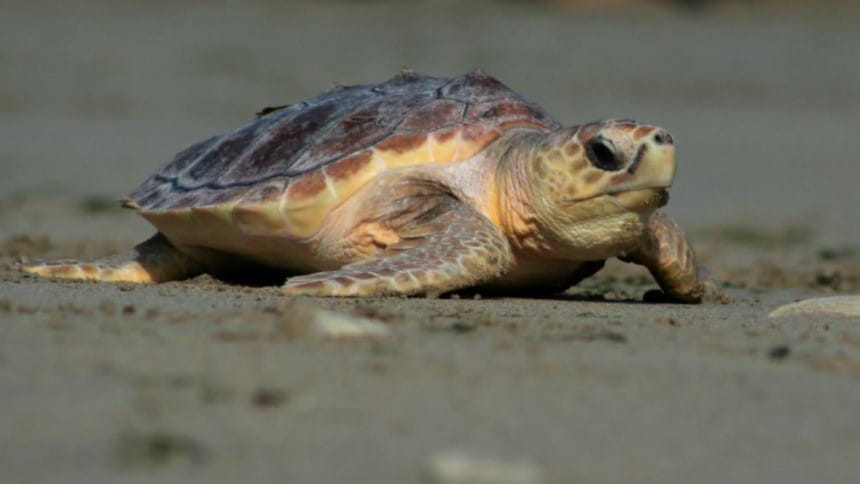Cutting-edge tracking technology boosts sea turtle conservation in Guangdong

A total of 200 sea turtles, including 100 acclimated to wild conditions, have recently been released into the ocean at the Huidong Port National Sea Turtle Nature Reserve in Guangdong province, marking a leap in China's marine conservation aided by cutting-edge domestic tracking technology.
The event, held on Friday to mark the World Turtle Day, was attended by 200 volunteers from various walks of life. It featured the debut of BeiDou satellite trackers developed jointly by the reserve and Hainan Normal University, signalling progress in safeguarding endangered marine species.
Under clear skies at the only coastal sea turtle nesting site on the Chinese mainland, crowds erupted in cheers as hatchlings crawled across golden sands toward the South China Sea.
"Go home! Swim safely!" said participants, including students and conservation advocates.
The marine conservation effort is a decades-long initiative to revive wild populations threatened by overfishing, pollution, and habitat loss.
Xia Zhongrong, director of the reserve, highlighted the rigor behind the effort: "We trained these 100 turtles for seven months to adapt to the wild. We provided natural foods such as seaweed and let them forage in semi-wild ponds. After more than six months of training, these turtles are vigorous, with a 100 percent survival rate."
Each released sea turtle was equipped with an electronic ID microchip, and two of them were specially fitted with the world's first antenna-free trackers based on the BeiDou satellite system.
"These devices will transmit real-time data on movements and habitat usage, helping us study migration routes and improve conservation strategies, ensuring the turtles' health in the wild, and contributing to the protection of critical ecosystems," Xia explained, adding that the reserve plans to expand tracker deployment in future releases to gather broader ecological insights.
Sea turtles, which have roamed oceans for 200 million years, are classified as endangered on the IUCN Red List. Since its founding, the reserve has protected more than 84,000 wild turtle eggs, released over 650,000 hatchlings, and achieved a record 2,058 newborn turtles last year — the first time annual births surpassed 2,000.
"Protecting sea turtles isn't just about saving a species — it's about preserving biodiversity and our oceans' future," Xia said.
With BeiDou's "eyes" now tracking the turtles' journeys, China's conservationists aim to turn the tide for these ancient "mariners", he said.
"Every hatchling symbolizes hope. By merging technology, tradition, and global collaboration, we're not just saving turtles — we're preserving the ocean's balance for generations," Xia said.

 For all latest news, follow The Daily Star's Google News channel.
For all latest news, follow The Daily Star's Google News channel. 



Comments